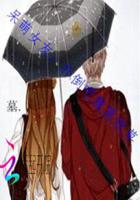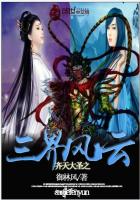Within a week the transition from larva to butterfly took place in the young, handsome, and clever Charles-Edouard, Comte Rusticoli de la Palferine. Until this moment of his life he had lived miserably, covering his deficits with an audacity equal to that of Danton. But he now paid his debts; he now, by advice of Maxime, had a little carriage; he was admitted to the Jockey Club and to the club of the rue de Gramont; he became supremely elegant, and he published in the "Journal des Debats" a novelette which won him in a few days a reputation which authors by profession obtain after years of toil and successes only; for there is nothing so usurping in Paris as that which ought to be ephemeral. Nathan, very certain that the count would never publish anything else, lauded the graceful and presuming young man so highly to Beatrix that she, spurred by the praise of the poet, expressed a strong desire to see this king of the vagabonds of good society.
"He will be all the more delighted to come here," replied Nathan, "because, as I happen to know, he has fallen in love with you to the point of committing all sorts of follies.""But I am told he has already committed them.""No, not all; he has not yet committed that of falling in love with a virtuous woman."Some ten days after the scheme plotted on the boulevard between Maxime and his henchman, the seductive Charles-Edouard, the latter, to whom Nature had given, no doubt sarcastically, a face of charming melancholy, made his first irruption into the nest of the dove of the rue de Chartres, who took for his reception an evening when Calyste was obliged to go to a party with his wife.
If you should ever meet La Palferine you will understand perfectly the success obtained in a single evening by that sparkling mind, that animated fancy, especially if you take into consideration the admirable adroitness of the showman who consented to superintend this debut. Nathan was a good comrade, and he made the young count shine, as a jeweller showing off an ornament in hopes to sell it, makes the diamonds glitter. La Palferine was, discreetly, the first to withdraw;he left Nathan and the marquise together, relying on the collaboration of the celebrated author, which was admirable. Seeing that Beatrix was quite astounded, Raoul put fire into her heart by pretended reticences which stirred the fibres of a curiosity she did not know she possessed. Nathan hinted that La Palferine's wit was not so much the cause of his success with women as his superiority in the art of love;a statement which magnified the count immensely.
This is the place to record a new effect of that great law of contraries, which produces so many crises in the human heart and accounts for such varied eccentricities that we are forced to remember it sometimes as well as its counterpart, the law of similitudes. All courtesans preserve in the depths of their heart a perennial desire to recover their liberty; to this they would sacrifice everything. They feel this antithetical need with such intensity that it is rare to meet with one of these women who has not aspired several times to a return to virtue through love. They are not discouraged by the most cruel deceptions. On the other hand, women restrained by their education, by the station they occupy, chained by the rank of their families, living in the midst of opulence, and wearing a halo of virtue, are drawn at times, secretly be it understood, toward the tropical regions of love. These two natures of woman, so opposed to each other, have at the bottom of their hearts, the one that faint desire for virtue, the other that faint desire for libertinism which Jean-Jacques Rousseau was the first to have the courage to diagnose.
In one, it is a last reflexion of the ray divine that is not extinct;in the other, it is the last remains of our primitive clay.
This claw of the beast was rapped, this hair of the devil was pulled by Nathan with extreme cleverness. The marquise began to ask herself seriously if, up to the present time, she had not been the dupe of her head, and whether her education was complete. Vice--what is it?
Possibly only the desire to know everything.















